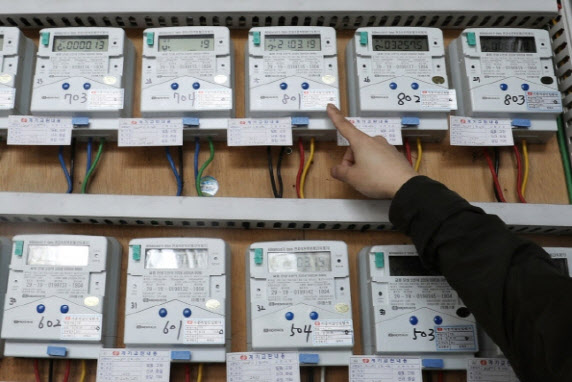|
[세종=이데일리 김상윤 한광범 기자] It was decided to freeze electricity bills for the second quarter compared to the first quarter. Considering the steep rise in international oil prices, electricity rates should be increased by close to 1,000 won compared to the first quarter electricity rate (54,000 won per month for 4 households), but the government has artificially prevented an increase in electricity rates in consideration of the steep inflation. As the pressure to raise rates is intense due to the surge in international oil prices, an increase in electricity rates is inevitable, but there is a possibility that the government will continue to intervene. It is pointed out that the purpose of introducing a non-fuel interlocking system may be unclear.
KEPCO announced on the 22nd that it has decided to freeze electricity rates for the second quarter from the first quarter. At the end of last year, KEPCO introduced a’fuel cost indexing system’ that sets electricity rates by reflecting fluctuations in fuel costs. Whether or not to raise the electricity rate is determined by reflecting the difference between the one-year standard fuel cost (average from December 2019 to November 2020) and the earnings fuel cost (last three months).
In the case of the second quarter, the standard fuel cost is 289.07 won per kilogram, and the earnings fuel cost is 288.07 won. The variable fuel cost is -1.0 won, and converting it into kWh results in a fuel cost adjustment unit price of -0.2 won.
KEPCO sets electricity rates based on the fuel cost adjustment unit price. In the case of 1Q, the fuel cost adjustment unit was -3.0 won per kwh. Considering this, electricity rates in 2Q should be 2.8 won higher than in 1Q to be normal. In the first quarter, the electricity bill for four-person households (using 350 kWh) was 54,000 won per month, so in principle, 980 won (350 kWh * 2.8 won) should be raised.
|
The reason for the increase in fuel cost adjustments compared to 1Q is due to the surge in natural liquefied gas (LNG) prices. The average LNG price reflected in the electricity bill for the second quarter is 478.81 won per kilogram. The average price of LNG in the first quarter was 324.70 won, up 47%. In order to reduce fine dust and greenhouse gases, electricity bills are bound to rise sharply because the operation of coal power plants has been reduced and LNG power generation has been increased.
Nevertheless, KEPCO’s electricity bills were frozen because they considered inflationary pressures. With the introduction of the fuel cost indexing system, the government laid the groundwork for deferring rate adjustments in the event of exceptional circumstances such as a sharp rise in oil prices within a short period of time.
An official from KEPCO said, “The fuel cost adjustment unit price increased compared to the first quarter due to the rise in international oil prices, but we were informed that the government needs to take a reservation in consideration of the temporary surge in LNG prices due to a cold wave over last winter.” It was decided to freeze in consideration of the stability of people’s lives, which are suffering from the prolonged corona 19.”
Accordingly, the monthly electricity bill for four-person households is 54,000 won, as in the first quarter.
Although the government introduced a fuel cost indexing system to solve the problem of KEPCO being a factor in raising electricity rates, it is pointed out that the purpose of introducing the system was undermined by still controlling prices. KEPCO’s share price rose to 24,750 won as of the 16th as the possibility of an electricity rate hike was raised, but it plunged 4.76% on that day and sank to 23,000 won.
The key is the second half. Considering that international oil prices are soaring, electricity production costs are highly likely to rise significantly in the second half of the year. Even if the upper limit applied to the fuel cost index is considered, the electricity rate for four-person households is expected to increase by up to 2800 won (350 kWh * 8 won) to 56,800 won. However, there is a possibility that the government will continue to use’retention measures’ in consideration of the surge in oil prices.
Kim Seong-soo, a professor at the Department of Energy and Electrical Engineering at the Korea Polytechnic University, said, “KEPCO is making a surplus and it seems to have frozen in consideration of the Corona 19 situation.” “He said.


